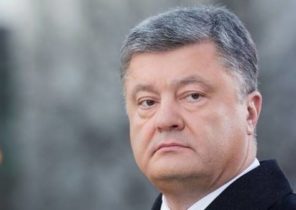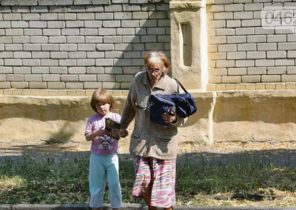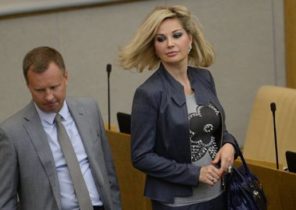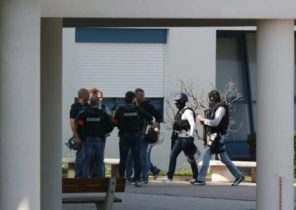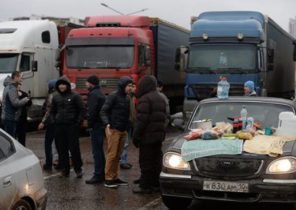In Central and Eastern Europe (CEE), including Russia, is a set of analytical centers, or “think tanks” (think tanks) that deal with regional security issues (Russia is the main theme because of the scale of its presence). The proximity of Moscow leads to polarization of opinions and statements — just as the impact of Beijing polarizes opinions in Asia. In Central and Eastern Europe are constantly researching on the topic of disinformation, fakes and propaganda.
In this our latest installment of the attitude of the expert groups to sanitary crisis, we will immediately make an important observation. In CEE (Central and Eastern Europe) epidemic coronavirus less attention than other regions of the world. It looks as if the crisis does not change the balance of power in CEE and sources of tension among countries in the region — tensions, often fueled from outside the region from afar. In any case, we do not ignore the situation and how it can affect the rivalry between the liberal and illiberally modes (as in the US and the EU call all the countries that do not match their ideas about democracy — approx. ed.), strategic development of Russia.
As usual?
Regional tensions still occupies a Central place in the discussions most often consider international relations from a classical point of view, interested above all in the balance of power. (The most popular topics — the future of NATO, the security of the Baltic States, etc.). Ukraine remains focused on its “hybrid war” with Russia (the Razumkov Center), and recognizes its current vulnerability on the background of the health crisis that is superimposed on other problems (international center for policy studies — the main Ukrainian producer of reports on this subject). The Baltic republics are concerned about their own security on the border with Russia. Poland condemns the softness of EU sanctions against Russia (Centre for Eastern studies OSW, Polish Institute of international relations — think tanks related to the topic in Poland). Serbia (European policy Centre — European Policy Center in Belgrade) is closely monitoring the progress of the negotiations on accession of Serbia into the EU.
Concern about сovid-19 is most often associated with concern about the situation in a country which the country “think tank”. Georgia concerned about situation in Turkey, where there are a lot of Georgian migrant workers. The center for economic analysis in the Polish Szczecin provides data on the health of older people in the country and distance education in the period of self-isolation. Anyway, from the results of local studies can make more global conclusions. The center of the Globsec Bratislava, for example, fears for the future of the Eastern partnership (launched in 2009 the EU policy in relation to some former Soviet republics). Therefore, the Center of the Globsec from Slovakia offers to think about “risk sharing” among EU members — in the sanitary, economic and financial terms.
The split between liberal and illiberal
It is believed that the global health situation can change the existing balance at the local level. Prague’s Association for international relations examines the illiberal policy of the Visegrad group (Hungary, Poland, Czech Republic, Slovakia). In the research of this think tank, tandem Orban and Kaczynski (the leaders of Hungary and Poland) versus the Czech Republic and Slovakia, which are better able to maintain the spirit of waiting for something good from the “transition to democracy”. By the way, most often coming from Western-funded think-tank forecast the future of the CEE after the coronavirus predicts the weakening of populism (the populist call in the EU and refusing to demonize Russia, Orban, and often opposing the EU from the conservative Catholic positions the PiS party in Poland — approx. ed.). The reason for the expected easing of the populist — economic impact of the epidemic, which can lead to the marginalization of the Eastern flank of the EU.
In Estonia, the international centre for defence and security RKK (International Centre for Defense and Security — ICDS) throws criticism at the attempts of the Hungarian leader Viktor Orban to consolidate his power through crisis. The Sofia Centre for liberal strategies in accordance with the name adheres to the same position, and Bosnian organizations “Foreign policy initiative” tries to assess the transparency of information about the epidemic that provide different government.
Other groups considering non-European populism, and authoritarianism outside the continent. So, a center CHOICE studies methods of Chinese influence in Central and Eastern Europe, as well as the impact of the project “One belt and one road”. Georgian Foundation for strategic and international studies emphasized the similarity of the Russian and Chinese rhetoric, the sanitary crisis, but also adds to this bad company of Iran, forming something new “axis of evil” that threatens the West. Georgian Foundation criticizes Russian propaganda and “Soviet” approach to resolving the crisis.
The Russian unknown
It is clear that analysts from CEE should give great attention to Russia. The Baltic States are concerned about the disruption of European defence and the cancellation of scheduled military exercises targeted against Russia. Exercises Dynamic Front, the Joint Warfighting Assessment (with U.S. army), Saber Strike (joint exercise of the three Baltic countries and Poland), Swift Response (with the participation of Bulgaria, Croatia and Romania) — all pending. Cancelled and the doctrine of the Cold Response-20 (maneuvers in the Arctic with the participation of 15 000 troops from NATO and the EU). The decision to cancel the Cold Response-20 adopted by Norway out of fear of the spread of covid-19. But meanwhile the Russian army continued training and benefits from this disruption of the free world.
And what do Russian expert groups and think tanks? Moscow Carnegie Foundation, to inspire us with ideas, thinking about how not to lose Russia the balance after the crisis. But it’s still the exception: most of the Moscow experts criticize the West. In the Russian international Affairs Council (RIAC) is considered anti-China, the US and the EU as an attempt to defend himself from criticism. Success in the fight against covid-19 showed that China, to look for a role model in the EU or especially in the United States is not necessary.
This opinion is shared by the IMEMO (Institute of world economy and international relations), whose articles talking about the “good news” from China and “record unemployment” in the United States. Director of the Institute of Europe RAS Alexey Gromyko, in turn, agree with the statement about the formation of the Chinese-American international system. All this reflects the mixed feelings that arise in Russian experts in the analysis of the latest trends: Moscow would like to see how China will overcome USA, but the strengthening of Beijing also does not inspire her peace of mind.
Thus, Central and Eastern Europe (CEE) is closely monitoring the crisis, but there is no consensus about which camp to support. She fears geopolitical change as a result of the crisis is not less than its sanitary consequences. That’s what agony is born the “new world”.

